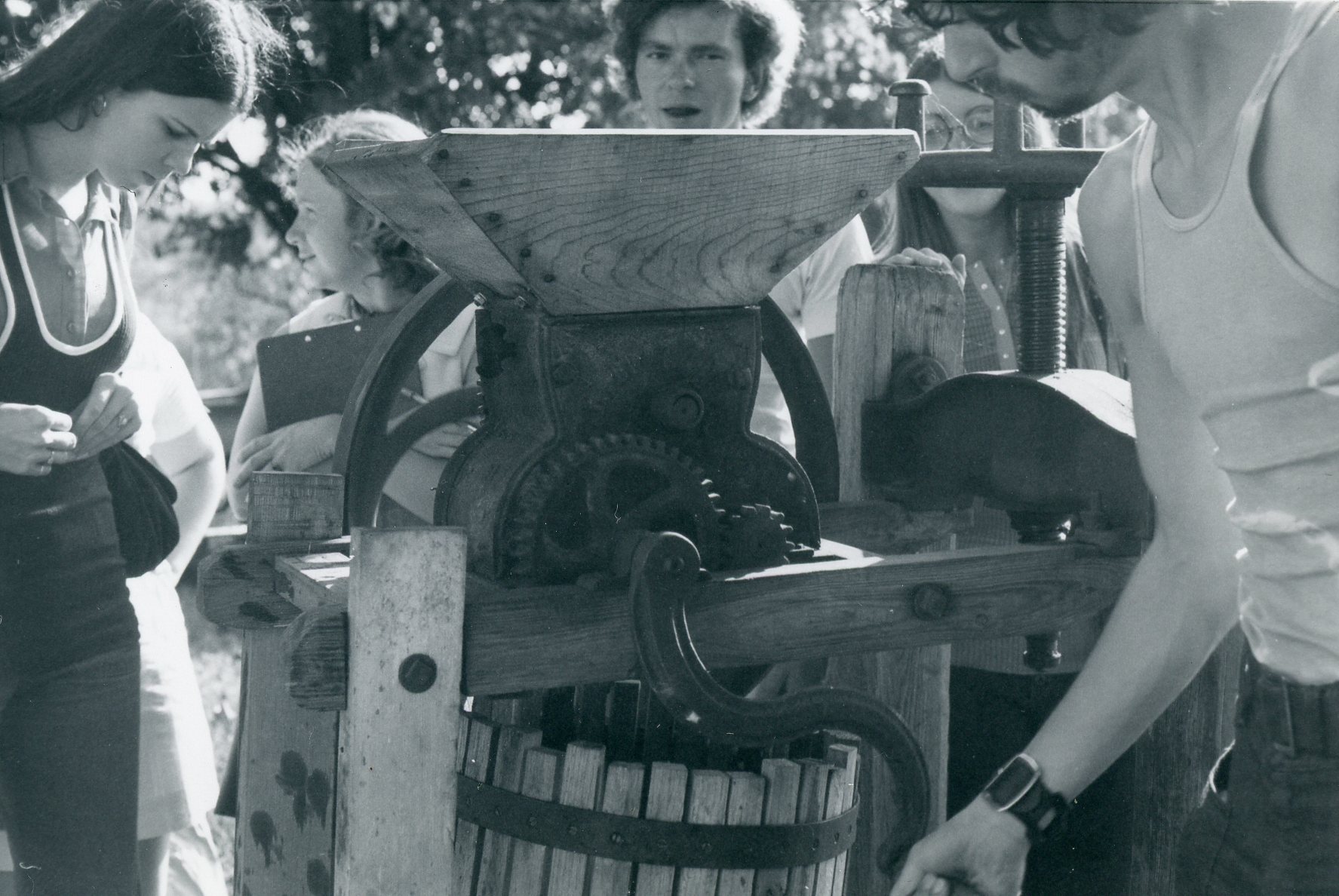In the summer of 1970, Western Kentucky University folk studies student Karen Stewart set out to explore the cider making process at a small home in the even smaller river town of Woodbury, Kentucky. The cider press owners, Randall and Daisy Lytle, were certainly no strangers to the nuances of traditional cider making and shared with Stewart their history of owning a press and working the apples from juice to jug.
Snaking its way through thick forests and sprawling pastures, the Green River skirts the edges of small towns throughout south-central Kentucky. It was on these muddy banks where Lytle, at the time a young boy, received his first cider press from a ninety-year-old riverboat captain. Lytle restored the barely-functioning press to its former glory and began selling homemade cider for fifty-cents a gallon. Several years later, after returning home from serving in World War II, Lytle discovered his press had been sold as scrap iron for twenty cents. It would be another quarter of a century before Lytle found his second press, but the cider was worth the wait.
Enlisting the help of an orchard owner in Logansport, Kentucky, Lytle, along with his wife Daisy, began the intensive process of cider making. Adhering to the motto of “no apple left behind,” the Lytles gathered as many apples as possible, including those with worms, which, according to Daisy, were “just protein, anyway.” After sorting and washing, Lytle placed the apples into a large hopper on the top of the press. With a large crank to one side, the hopper served as a makeshift food processor reducing the apples to a thick pulp, which was collected in a barrel made of wooden slats. Lytle transferred the product to another barrel where a large wooden disc was lowered onto the pulp, squeezing out the juice between the slats. Afterwards, the juice was strained through a cloth into a glass jug, and any remaining pulp was fed to farm animals. Standing in the bottle for several days, the juice would begin the fermentation process, eventually resulting in the crisp, tangy flavor of a well-made cider.
With interest in southern foodways, self-sustainability, and cultivating intentional community at an all-time high, there is comfort in knowing that the Lytles served a vital role in carrying on the legacy of traditional craft brewing.
Click here for a finding aid for Stewart’s paper.
For more information relating to Kentucky folk studies, projects, and collections, visit WKU’s Special Collections Library.
Post written by WKU Folk Studies graduate student Delainey Bowers

